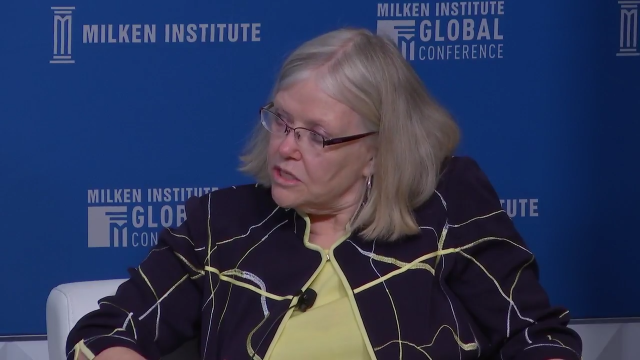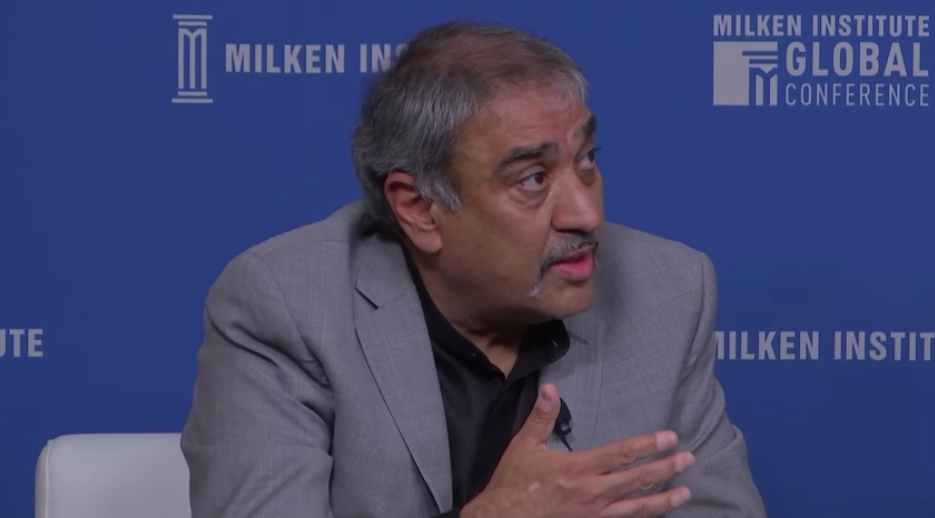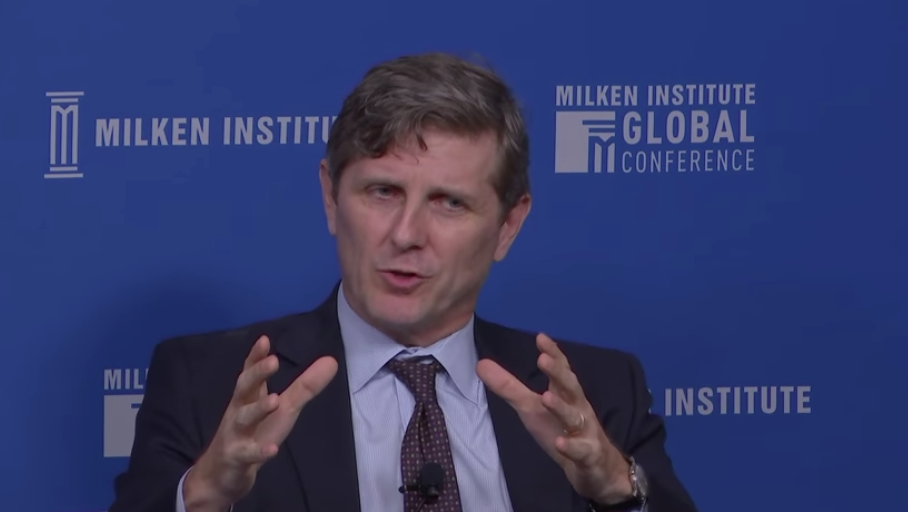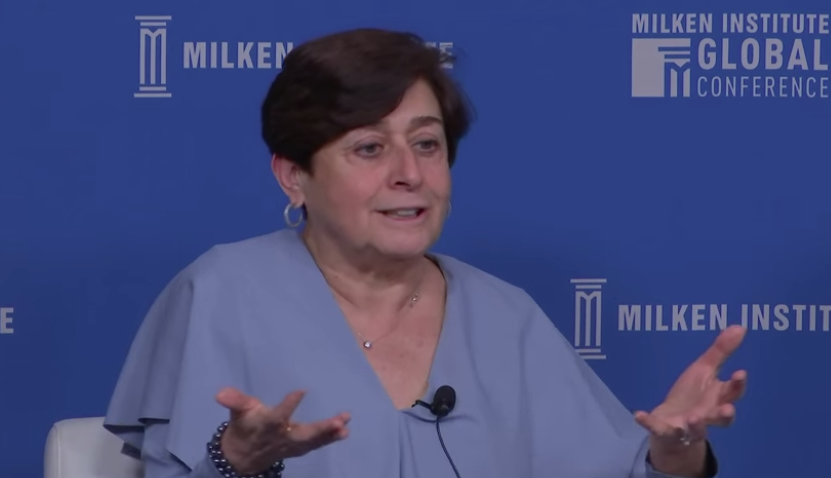By the latest count, there are more than six million American jobs waiting to be filled. Businesses say they can’t find the workers with the skills needed to fill them. Job seekers don’t know how to get the skills they need to get those jobs. The talent shortage is a well-defined problem that cannot be solved in a vacuum.
“It’s a crisis not only for individuals who are out of work or underemployed or on the sidelines, but it’s also a crisis for American companies and the foreign companies that have chosen to invest here. Every day that they have a job that lays vacant is a day that they lose money,” according to Jane Oates, President of WorkingNation.

“Solutions are about connectivity, about partnerships,” said Oates. “People who are working together to inform everybody about what the job titles are in that local area, and the people, who have the capabilities but may not have the skill set that’s listed, know who to go to to get those skills. And the employers are watching that and hiring those people.”
Oates’ comments came during a lively panel discussion on the jobs skills gap and how to solve it at the Milken Global Conference. Oates was joined onstage by Chauncy Lennon, Managing Director and Head of Workforce Initiatives, Global Philanthropy JP Morgan Chase; Daphne Kis, CEO of WorldQuant University; and Pradeep Khosla, Chancellor of the University of California, San Diego. Rick Newman, a financial columnist for Yahoo Finance, moderated.
Much of the conversation focused on what the traditional education model has been in this country and where it should be in the future. All agreed, even the chancellor, that a four-year college or university may not be the path everyone needs to follow to get the skills they need to get one of the good-paying jobs that are already out there or may exist in the future in their community.

“So, part of the problem that we should be willing to face is the typical American family really believes that a four-year degree is a path of upward social mobility. They may not be all wrong, but it’s not all correct either,” said Khosla. “If you look at the history of this country, upward social mobility happened a lot in mid-America in normal manufacturing jobs, when the economy was going, and the jobs were more evenly distributed across the whole spectrum. What we are seeing right now is a completely tech-dominated economy where between bio and tech is exactly where all the wealth has been generated.”
“At least one year of post-secondary education is going to become the norm. And if that one year doesn’t end up in an industry-recognized credential, you’re going to have very few options,” said Oates.
RELATED STORY: Get to know WorkingNation President Jane Oates
Figuring out which credential to go after — What does a business want? What skills do I need to get a good-paying job now? — is another issue that needs to be addressed, according to Lennon.
“It’s amazing that we live in an economy and a labor market where you can learn more about the quality of the pizza place down the corner from Yelp than you can by going online and looking for credentials,” added Lennon. “We don’t really have a very rational system of credentialing in the U.S. You can’t actually look at a database of all the credentials that are out there.”
Lennon said a partnership of employers, unions, funders, and researchers are trying to change that by building the Credential Engine, a collaboration intended to put all the information about credentialing programs in one place.

“It’s everything, from a B.A. to welding to nursing. There are literally hundreds of thousands of credentials out there, but they are not organized and there’s no transparency around which ones are valued by who. So, you can go say I want to become a welder. Let me understand what credentials are available, what employers value, how much they cost, and what is the track record of that credential versus the other credential,” said Lennon.
“WorldQuant takes a more global view, perhaps, than some of our discussion here,” said Kis, CEO of the nonprofit company. “We have nearly 2,000 students on our platform. Our first program is a completely tuition-free masters in Financial Engineering, which we think is well-aligned with what industry is looking for at the intersection of financial management, computer science, and data science.

“One statistic that’s kind of interesting is that about 38 percent of our students are between 30 and 39 years of age,” Kis added. “So, in some sense, they too are kind of re-skilling. Some have undergraduate degrees, have been in a variety of industries, and now are understanding that these 21st-century skills are a means for them to apply their capabilities to industries that are demanding the kinds of capabilities that they have.”
Khosla, as Chancellor of UC San Diego, acknowledged that the higher education system is looking harder at these new models of post-secondary learning. But, he argued, universities will still have an important role in educating future generations.
“I have a biased view. I’ll take you back to 1960, 1970, 1980, where the educational system was focused more on very broad-based, general education, when, for example, people were doing bond trading. A lot of these were new ideas back in the 80s and 90s, the universities were not teaching it, but somehow people got absorbed, people got employed, life went on just fine,” Khosla said.
“So, I think sticking it to the universities, saying you’ve got to give all the skills that the industry needs is actually a big mistake because even industry doesn’t know what skills it needs,” said Khosla. “I think what we need to do is prepare people with great ability to think, problem solve, elaborate, be part of a community, understand how to be inclusive, understand how to be open-minded. And I think that would lead to a much stronger worker and society.”
“I never want to lose the value of a bachelor’s degree or a master’s degree or a Ph.D. The data are pretty clear on that. If you have a bachelor’s degree, you’re going to make two-and-a-half times more than someone who has just a high school education, looking backward,” added Oates. “Looking forward, that may change, but there’s no question that you’re going to need skills, and the definition of those skills could be very different.”
Join the Conversation: Watch the panel and tell us your thoughts about building a 21st-century workforce on our Facebook page.
© Copyright 2024 by Structural Unemployment, LLC dba WorkingNation